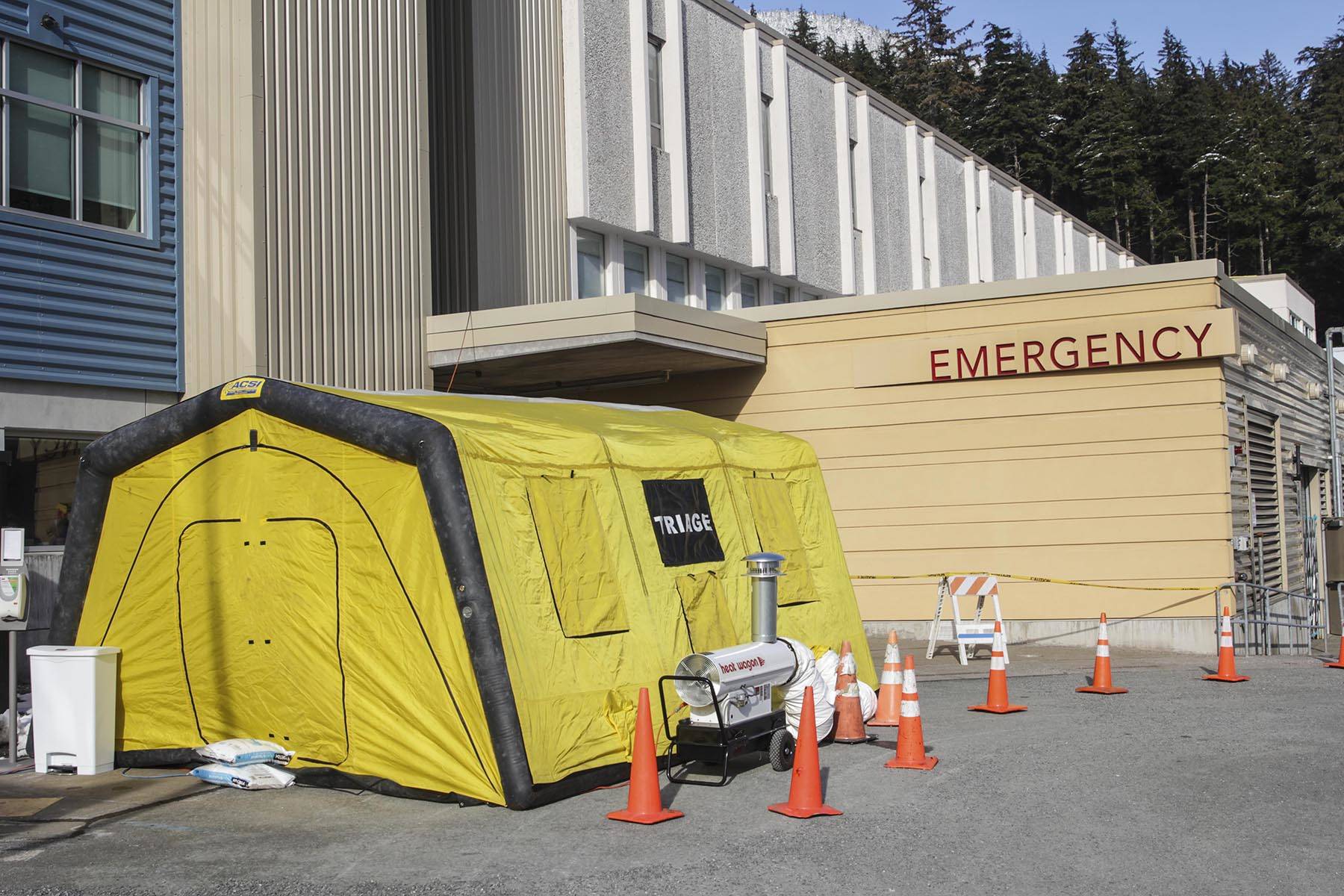COVID-19’s effects resonated through Juneau as the week drew to a close.
Sayeik: Gastineau Community School was closed Friday because of coronavirus concerns after a student was tested for multiple viruses, and Canada closed its ports to large cruise ships until July.
A student showed symptoms of a viral infection, said City and Borough of Juneau City Manager Rorie Watt in a phone interview. The student was tested for the flu and for coronavirus. The results of those tests will not be available until Tuesday, Watt said.
All of the schools of the Juneau School District will be closed Monday and Tuesday for faculty and staff to train on best practices to prevent the spread of coronavirus. This includes preparing for the possibility that more schools may close — possibly for longer periods of time.
“They’ve got to figure out how to deliver education to those kids,” Watt said. “On Monday and Tuesday they’re going to figure out how to do that.”
Watt said the schools are also retooling to support students who rely on services like breakfasts and lunches.
“Schools have to figure out how to deliver education and other programmatic services,” Watt said. “We’re talking about how to flatten the curve and how to strategically use public policy tools.”
Flattening the curve refers to adopting measures to slow the spread of the disease from a steep spike that would overwhelm the capability of emergency services to a more gradual slope that allows hospitals and emergency personnel to take it in stride.
“We’re just trying to operate normally,” Watt said. “Admittedly, this is not normal.”
Watt said CBJ is maintaining normal operations and services at this time, though that may change as circumstances dictate.
Closed harbors
In Canada, the government will close its harbors in Vancouver until July 1, according to the Canadian government. This is likely to have staggering repercussions for Juneau.
“In terms of forecasting, if that’s what happens, that’s going to be a devastating blow to the businesses and the economy,” Watt said. “It means the ships can’t come here. That’s obviously a very big deal. The large ships are all foreign-flagged and foreign-staffed, which means they have to comply with the Jones Act.”
The Jones Act is a law from 1920 that specifies if a ship is to travel exclusively between two U.S. states, it must be U.S.-flagged, predominantly U.S.-crewed, and predominantly U.S.-owned. Cruise ships, which are usually foreign-flagged and foreign-crewed, do not meet these requirements. As such, they are legally required to stop in a foreign port, and aside from Canada there are no countries between Alaska and Seattle.
“Any delay in our season will impact our small business owners, but we understand the need to flatten the curve,” said Liz Perry, the president and CEO of the Travel Juneau, a nonprofit dedicated to supporting the tourism industry in Juneau. “What we’re trying to do is to get the information out to them as quickly as possible.”
Ready for the challenge
Bartlett Regional Hospital is also gearing up to handle the possibility of more coronavirus cases in Alaska.
Thursday evening, Gov. Mike Dunleavy announced Alaska’s first confirmed case.
“We are taking this seriously,” said Rose Lawhorne, chief nursing officer for BRH. “We have a plan for escalation.”
BRH personnel are tightening controls for entry to the hospital, putting up a prescreening facility in a yellow shelter outside the emergency room for anyone presenting symptoms of the coronavirus to reduce contact with the interior of the hospital. Medical personnel will ask potential patients a list of set questions that are being determined.
“Anyone who presents for the care will be stopped at the tent and screened appropriately,” Lawhorne said.
People displaying symptoms will be asked to return to their cars, where medical personnel will take their vitals. This is intended to keep potential contagions away from other patients. Those that need urgent care will be admitted, but Katie Bausler, public information officer for BRH, suggested that if someone can take care of themselves at home, to do so.
“Call your healthcare provider first,” Bausler said. “We do have a limited pool of resources.”
Visitors will also be sharply curtailed, especially to the obstetrics unit of the hospital.
Restricting access to other areas of the hospital reduces the risk of contamination of medical personnel, said Kim McDowell, the emergency department director. Hospital visiting hours will be restricted, from 6 a.m. to 8 p.m.

